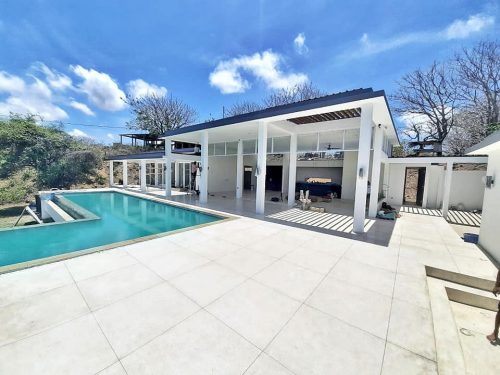Concrete contractors are among the most significant stakeholders in the majority of construction projects. While some sustainable structures are made entirely of wood and glass, the majority of commercial and industrial structures are still made of cement. Today, we will look at the fundamentals, significance, and benefits of various cement types used in the construction industry. Concrete construction is a critical component that is used in a variety of residential and commercial structures.

The Benefits of Concrete Construction
Concrete is the most widely used construction material in the world due to its distinct advantages over other materials.
Concrete is cost-effective
When compared to engineered cementitious materials used in construction, cement concrete has a very low production cost. It is once again affordable and widely available when compared to steel, polymers, and other building materials. Concrete’s three main components are cement, water, and aggregates. In local markets, all of these are reasonably priced.
Concrete hardens at room temperature.
At regular room temperature or ambient temperature, concrete sets, hardens, and gains strength. As a result, concrete can be used regardless of the weather and, if necessary, optimized with admixtures.
Excellent water resistance properties
Though chemicals in water can cause corrosion in concrete and reinforced concrete. Concrete unlike wood and steel, can withstand water without significant deterioration. Concrete is ideal for underwater and submerged applications because of the property.
Low or no upkeep is required
Concrete construction unlike steel or wooden structures, do not require coating or painting for regular applications to protect against weathering. The coating will be replaced and redone on a regular basis, resulting in a much lower maintenance cost for concrete than for steel or wood.
Types of Concrete in Construction
Common Concrete
Common concrete is one of the most popular types of concrete. The essential constituents of this type of concrete are cement, sand, and coarse aggregates designed and mixed with a specified amount of water.
Within certain limits, the ratio of essential constituents can be varied. A common mix design, also known as Nominal Mix Design, is 1:2:4.
Plain concrete is mostly used to build pavements and buildings where tensile strength is not a requirement.
Lightweight Concrete
Any type of concrete with a density less than 1920 kg/m3 is considered lightweight.
Natural materials such as pumice and scoria are used in the manufacture of lightweight concrete, as are artificial materials such as expanded shales and clays, and processed materials such as perlite and vermiculite.
The single most important feature of lightweight concrete is its extremely low thermal conductivity.
Thermal conductivity, for example, can have a k value as high as 10-12 for plain concrete. However, the thermal conductivity of lightweight concrete is around 0.3.
Lightweight concretes are used for thermal insulation, protecting steel structures, long-span bridge decks, and even as building blocks, depending on their composition.
Concrete of High Density
Heavyweight concrete is another name for this type of concrete. The density of this concrete type ranges between 3000 and 4000 Kg/m3.
These concretes are made with high density crushed rocks as coarse aggregates. Barytes, with a specific gravity of 4.5, is the most commonly used of these materials.
Because it protects against all types of radiation, it is mostly used in atomic power plants and other similar structures.
Concrete construction is the most common and long-lasting building material. In countries prone to natural disasters such as floods, earthquakes, concrete construction is highly recommended. The development of villas in Bali is increasing sharply in line with the demand for accommodation for domestic and foreign tourists.
The construction of a concrete villa provides many benefits for the owner. As mentioned above, concrete construction can reduce the budget for villa development. If handled by an experienced concrete constructor, your villa building will be durable and easy to maintain.


